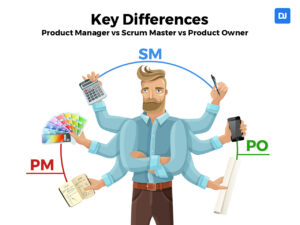Testing a candidate’s technical skills during the hiring process is a popular strategy. Editors check grammar levels of writers and IT managers test the coding skills of developers. It is a common practice, and we all have been there when looking for a job. Testing a candidate’s skills is the first step to pick the perfect candidate for your project. With the wrong approach, however, how do you test these skills can turn into a waste of time.
Whiteboard interviews are the most popular strategy to test coding skills. If you are a tech leader, you probably already know what I am talking about. Hiring a developer is getting more complex and the competition is fierce. According to the Bureau of Labor Statistics, between 2019 and 2029, software developers’ employment will increase up to 22%.
With increasing competition, whiteboard online seems to be the best ally during the hiring process. Yet, there are tons of complaints from the other side (yes, developers have their point of view about it). Are you sure that whiteboard interviews are the best strategy to hire talented developers?
What Is A Whiteboard Interview?
In short, whiteboard interviews are tech quizzes to evaluate your future candidate. Recruiters usually rely on this type of interview to test the coding process, focusing on a specific topic that could fall outside the candidate’s area of expertise.
The idea is to test how a developer reacts to a task under pressure, judging problem-solving abilities. During a whiteboard interview, the point is to put the candidate out of the usual comfort zone.
It sounds logical and it explains why almost every tech company on earth does whiteboard interviews. Let’s try to see whiteboard interviews from a developer’s perspective with an example. When you write a proposal or prepare a presentation, how many times do you check grammar rules? Unless you are a non-native speaker, you probably never check. That’s simply because, at this level, you aren’t learning the language. You are using it. The same thing goes for developers and engineers.
Are Whiteboard Interviews A Waste Of Time?
The main issue with whiteboard interviews is that the type of algorithms in the test is rarely used in advanced software development projects. It is unlikely that your future developer will code out of memory to solve problems. Aside from existing libraries, your development team will work on specific bugs or bottlenecks in your project, rather than applying random lines of code.
In this sense, whiteboard interviews don’t give an accurate overview of soft skills, attitude, and problem-solving. Instead, they are an excellent test to repeat coding knowledge from books, which doesn’t come from actual experience in the field.
Experienced software engineers won’t even remember basic code because they don’t work with it for an advanced project. A developer would write code out of memory only in a post-apocalyptic era. In real life, developers and engineers have existing libraries, open-source software, and online communities to solve your problem.
Alternatives To Whiteboard Interviews
Unlike students mastering their coding skills, professional developers improve their practice building projects, maintaining the running code, or fixing bugs. Even when they don’t remember basic code out of memory, experienced engineers are good at looking for what they need to make the project work.
Additionally, unless you aren’t looking for a student or entry-level developer, the average senior developers won’t have time to get their heads back to manuals to memorize a few coding tricks. As we just mentioned, an experienced developer probably won’t even remember these basic coding tricks. Whiteboard online tests can be helpful to speed up the hiring process, but not necessarily a winning card.
So, if you are looking for an experienced developer, few alternatives can better grasp a candidate’s skills and abilities.
1. A Project
Most candidates don’t deal well under pressure or improvising lines of code on the spot. If you want to test problem-solving and soft skills, you can assign a small project for them to work on. Unlike whiteboards, with a small project, you’ll also be considering other aspects, such as time management and overall the developer’s performance. You can also monitor communication skills and the quality of the final project.
2. Test Bugs and Bottleneck
If you want to have a closer look at the candidate’s technical skills, you can also assign a project related to what you’re currently working on in your IT team. For example, in the past months, your developer solved a couple of simple bottlenecks and bugs that highly improved your user experience. You can share the same issues, comparing your developer’s and the candidate’s solutions to having a more concrete grasp of skills and potential.
3. Technical Interview With The Team
Another good strategy is scheduling a second interview with your team members. If you like how your candidate performed with the projects, you can test how your new hire interacts with the rest of the group. You can set up possible scenarios and see how the candidate deals with requests and communicates with the other team members.
Best Strategy to Hire? DistantJob!
With that said, the best way to hire a great candidate for your project is through a solid hiring process. Looking for new team members is never an easy task. You need to spend time on it and put attention to each step of the process, from screening CVs to the final interview.
Or, you can ask us. We are a remote recruitment agency with over a decade of experience in the tech field. At DistantJob, we believe that a good team makes a difference, which is why we put so much attention when we help companies hire remote developers. If you need to hire a new tech talent or know more about compelling interviews, contact us!





